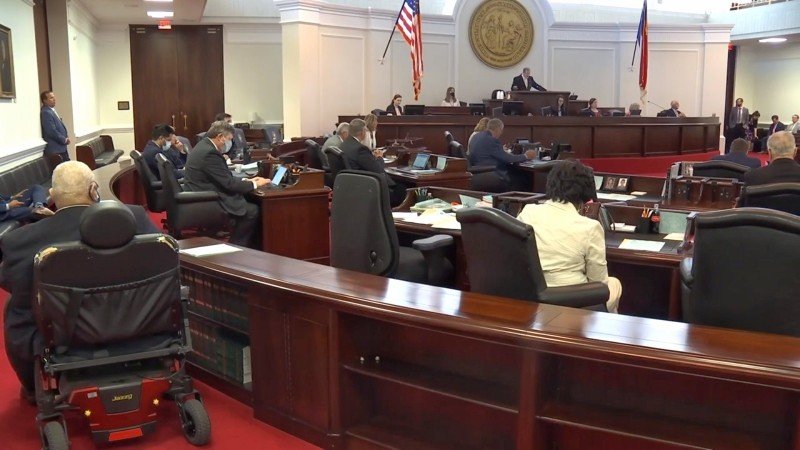North Carolina Senate approves sports betting bill, now heads to House

North Carolina’s Senate approved Thursday, August 19 a bill to legalize sports betting in the state in a 26-19 vote. The bill now will be heading to the House of Representatives.
The bill was brought up in the Republican Senate despite the fact that most members of the party opposed it, as nine Republicans voted in favor and 15 against it. On the Democratic side, 17 voted in favor of the bill while four opposed it, reports CBS17.
On the steps taken to legalize sports betting, Republican Senate leader Phil Berger said: “I’ve seen what’s been going on in other states as far as sports wagering. It’s one of those things that’s there whether we take this step of not.”
The sports betting bill would permit between 10 and 12 sportsbooks operators to offer sports betting in the state, taxed at 8% gross gaming revenue, making it one of the lowest rates in the country. The licenses are valid for five years.
It is expected this low tax rate will attract bids for a license from the largest operators in the market. However, it is believed that the tax rate could go up as the bill moves through the House and nears a final version.
Senator Jim Perry, one of the lead sponsors of the bill, said based on the varied estimates for how much money the bill would generate for the state that, ultimately, it would report about $40 million to $50 million in taxes per year to the state; while a nonpartisan analysis by staff at the legislature estimated between $8 million and $24 million.
Senator Paul Lowe, Democrat, concurred on the bill’s potential to bring revenue to the state, adding that there is already illegal gambling taking place. Legalization would allow North Carolina to profit from gambling and direct it to areas in need of resources.
Despite the voices in favor, which ultimately led to the Senate approval, the bill has remained a controversial topic of debate. “This bill produces very little money, and it targets young people,” said Senator Jim Burgin, a Harnett County Republican.
In its current iteration, the bill calls for half of the revenue to go to the state’s general fund, while the other half would go to a new fund to promote major events: the North Carolina Major Events, Games and Attractions Fund, which aims at increasing job opportunities and economic development in the state.
As the House must now consider the legislation, the process is expected to last several weeks, and would culminate with a signing into law by Democratic Governor Roy Cooper before legal wagering could launch.
Moreover, sportsbooks also would require to pass state regulatory approval in order to begin operations in North Carolina, a process also estimated to last weeks or even months, making it likely that sports betting would launch in 2022.

















































